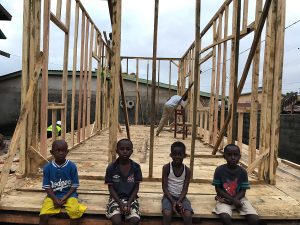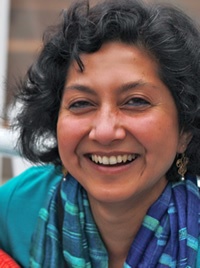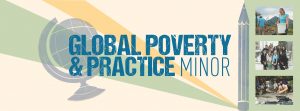By Veena Narashiman ’2020
Early years of childhood form the basis of intelligence, personality, social behavior, and capacity to learn and nurture oneself. Increasingly, child development researchers are also finding that brain development during the first eight years is the most rapid, with children who receive attention in their early years achieving more success in school.
Sneha Sheth (Berkeley Haas MBA ’2016) knew these facts, having designed international programs for women’s empowerment and education for Dalberg, Education Pioneers, and Teach For India. She understood that early education in India was often neglected due to high rates of poverty and illiteracy–and that the nation holds many of the 200 million children in developing countries at risk of not reaching their full potential.
“I met hundreds of mothers, who had never gone to school,” said Sheth of her time working in a Mumbai slum. “They were willing to do whatever it took to get their kids a great education, but they weren’t really sure how. They would often ask me, ‘Well, I didn’t go to school, what can I really do about this?’”
While pursuing an MBA at Cal, Sheth began to think about an education technology project that could serve low-income Indian parents. During the summer of 2015, she and Sindhuja Jeyabal, who was completing a master’s degree at the UC Berkeley School of Information, piloted DOST, meaning friend in Hindi.
Sheth and Jeyabal then turned to the Big Ideas student innovation contest for development and feedback. Their Big Ideas mentor, Anthony Bloome, a senior education technology specialist at USAID, encouraged their ambition to come up with a solution for early childhood development in India. Big Ideas allowed Sheth and Jeyabal to iron out their implementation plan. In May 2016, DOST won in the Mobiles for Reading category.
Soon after, DOST was named one of the Top Three Edtech Startups in 2016 by the Unitus Seed Fund, followed by an invitation to join Y Combinator. In 2017, the team returned to Big Ideas, winning third place in the Scaling Up competition. The nonprofit’s supporters now include the Mulago Foundation, the David Weekley Family Foundation, and the Chintu Gudiya Foundation, among others.
The path to creating DOST was iterative, said Sheth. “At first, we talked to parents about how those who can’t read can still have a lot of weight in early childhood education. We had to show parents that playing, singing, and talking with their kids was a form of education.”
Sheth and Jeyabal recognized a major challenge was getting busy families to come to DOST early education classes. “You can’t change behavior in one session, and you can’t see changes penetrate in a community in just one session,” said Sheth. Even if one parent was able to attend sessions—and it was often the mothers—DOST wanted to involve fathers, grandparents, aunts, and other extended family members in lesson plans. When the team was brainstorming ideas for a practical approach to this problem, they finally asked, What if we just call them?
Due to the widespread use of Nokia cellphones, Sheth and Jeyabal began to consider a technological approach to parent learning. Sending podcasts to parents, they realized, would allow DOST to serve many families and grow rapidly. Parents also wouldn’t need to make the tough decision of deciding between attending a parenting class or cooking dinner.
DOST began to develop 1- to 2-minute daily lesson plans and verbal activities as podcasts deliverable to parents’ phones, allowing busy mothers and fathers to integrate their child’s early development into their daily lives. The audio programs instruct parents to teach basic literacy and numeracy. The first audio program is 24 weeks long, and is targeted at parents of children who are two- to six-years of age. As of October 2018, there are 20,000 Indian caregivers using DOST every day, a figure that has grown 100 times in the last two years.
One of the first lesson plans featured how parents could speak to their children without intimidation. By trying a collaborative approach rather than a violent one, parents reported their children were more receptive to instructions and guidance. One of DOST’s most popular mini podcasts encourages mothers to make rotis in different shapes for dinner—fostering pre-numeracy skills at a young age.
To build awareness for DOST, the nonprofit has hired mothers from the communities it targets. “DOST Champions see the untapped potential in their own community and know how to convince their neighbors to join DOST,” said Sheth. “It’s also a plus to create employment in the areas we work in.”
Ultimately DOST’s mission is to provide uneducated parents with the resources to enable their children to excel. “Whether it’s by categorizing rotis as big or small during cooking or naming the colors in a sari,” said Sheth, “these kids will be more prepared for their future.”






